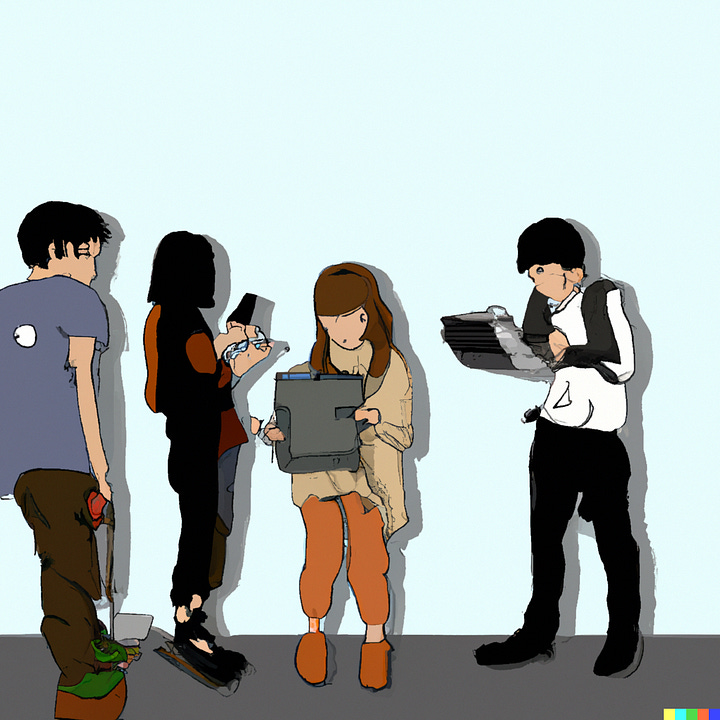ChatGPT is here to stay, and like many new technologies, it is going to change how schools do business. As education evolves and adapts to new advancements in technology, it's important to pause and reflect on the profound impact these innovations have had on the way we teach and learn.
In the past 20-30 years alone, we have seen the rise of transformative technologies such as the calculator, the internet and Google, Learning Management Systems, smartphones, and virtual and augmented reality. Many of these technologies were (are) viewed as a negative to student learning, however, this will be the environment in which students will live and work, so how can we embrace it to benefit their learning and development?
As we look towards the future, it's clear that ChatGPT is here to stay and will continue to play a pivotal role in education. In this article, we will take a closer look at how ChatGPT can be leveraged to foster critical thinking and enhance the learning experience for both students and teachers.
One of the key advantages of ChatGPT is its ability to provide students with instant access to information and support 24/7. With its vast database of knowledge, ChatGPT can help students understand complex concepts and deepen their understanding of various subjects. Additionally, it can provide students with personalized responses to their questions, ensuring that their unique needs are met.




For example, a teacher might post a question to their class, such as, “How can a single individual impact global warming?” Ask students to write a personalized prompt in ChatGPT that addresses this issue and speaks to them personally. Follow up by allowing students to get up and chat with classmates about the prompt they composed and the responses they received. This could be followed up with a class discussion or a short writing assignment asking students to critically analyze the pros and cons of the response they received. Or, create a small group assignment, asking students to pool their responses and create a team response. The engagement, the learning, the personal investment, and the critical analysis for this are incredible.🤯
Moreover, ChatGPT can also enhance the teaching experience by allowing teachers to focus on more interactive and engaging activities in the classroom. By automating routine tasks such as grading assignments, teachers can save time and focus on creating engaging lessons that stimulate critical thinking and encourage active participation from students.
Additionally, ChatGPT can support language learning by providing students with real-time translation services and language learning resources. This can help students expand their vocabulary, improve their grammar, and gain a deeper understanding of the language they are learning.
In conclusion, ChatGPT has the potential to revolutionize the way students learn by providing them with instant access to information, support, and resources. Its ability to personalize learning and enhance the teaching experience makes it a valuable tool for both teachers and students alike.
On the other hand, there are also potential drawbacks to consider. The primary concern raised by schools regarding the use of ChatGPT is the potential for students to engage in cheating. This, in addition to other concerns, such as becoming to reliant on a resource that could be hacked, providing incorrect information, or that one day could be gone like that 💨 😜.
Those concerns are certainly warranted, but I fear the greatest dangers lie within us as human beings. Overreliance on ChatGPT over time may stifle our creativity and hinder our innovative thinking. It could diminish our drive to cultivate and establish a connected classroom environment, thus limiting our opportunities for growing and developing relationships, building our relationship skills, as well as cultivating our sense of humor, our sense of self, and our sense of inner strength.
The COVID-19 pandemic has emphasized the critical role that schools play in fostering personal connections and building relationships. If there's one lesson we've learned from the pandemic, it's that the value of in-person interaction and face-to-face learning is immense. In schools, students have the opportunity to form bonds with their peers, teachers, and mentors, which is essential for their social and emotional development. These relationships can have a lasting impact and shape the way students view themselves and their place in the world.
Schools also provide a supportive environment for students to build their self-esteem, resilience, and confidence, as well as develop key life skills such as communication, problem-solving, and teamwork. These skills are not only valuable for their academic and professional success, but also for their personal growth and happiness.
Schools play a vital role in shaping students not only academically, but also socially, emotionally, and personally. When technology, such as ChatGPT, is incorporated through modern instructional design, such as that of Neuropacing™ it will further enhance these critical elements of student development.
By combining the power of ChatGPT with the evidence-based Neuropacing instructional design, we would not only provide students with a wealth of information and resources, but also support their personal and social-emotional growth. This powerful integration has the potential to deepen student understanding and enrich the learning experience.
In addition to its benefits for students, ChatGPT and Neuropacing can also enhance teachers' ability to foster strong, effective communication skills in their students. With opportunities to get real-time feedback, ChatGPT can facilitate dialogue, collaboration, and active learning in the classroom.
In conclusion, when implemented thoughtfully and strategically, technology like ChatGPT and Neuropacing can play an important role in helping schools achieve their broader mission of fostering personal growth, building relationships, and preparing students for success in the world.




